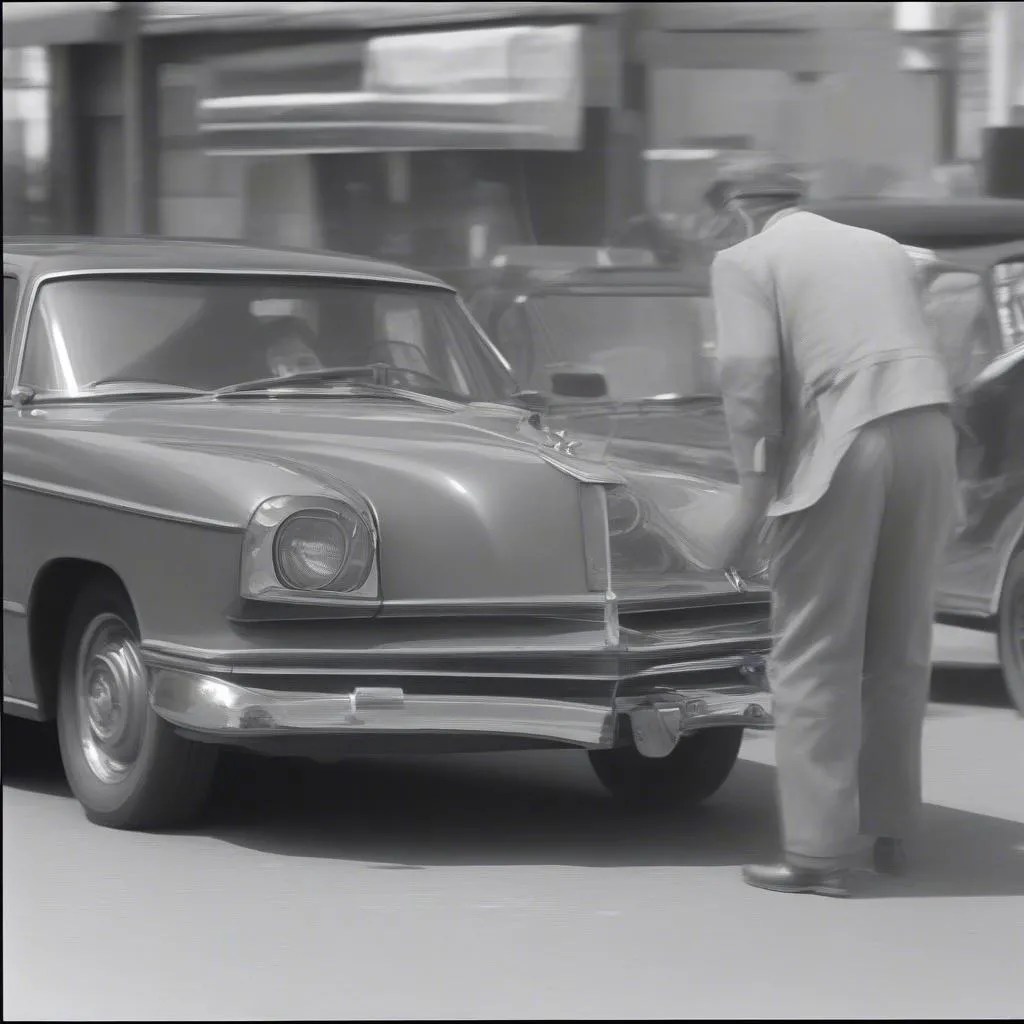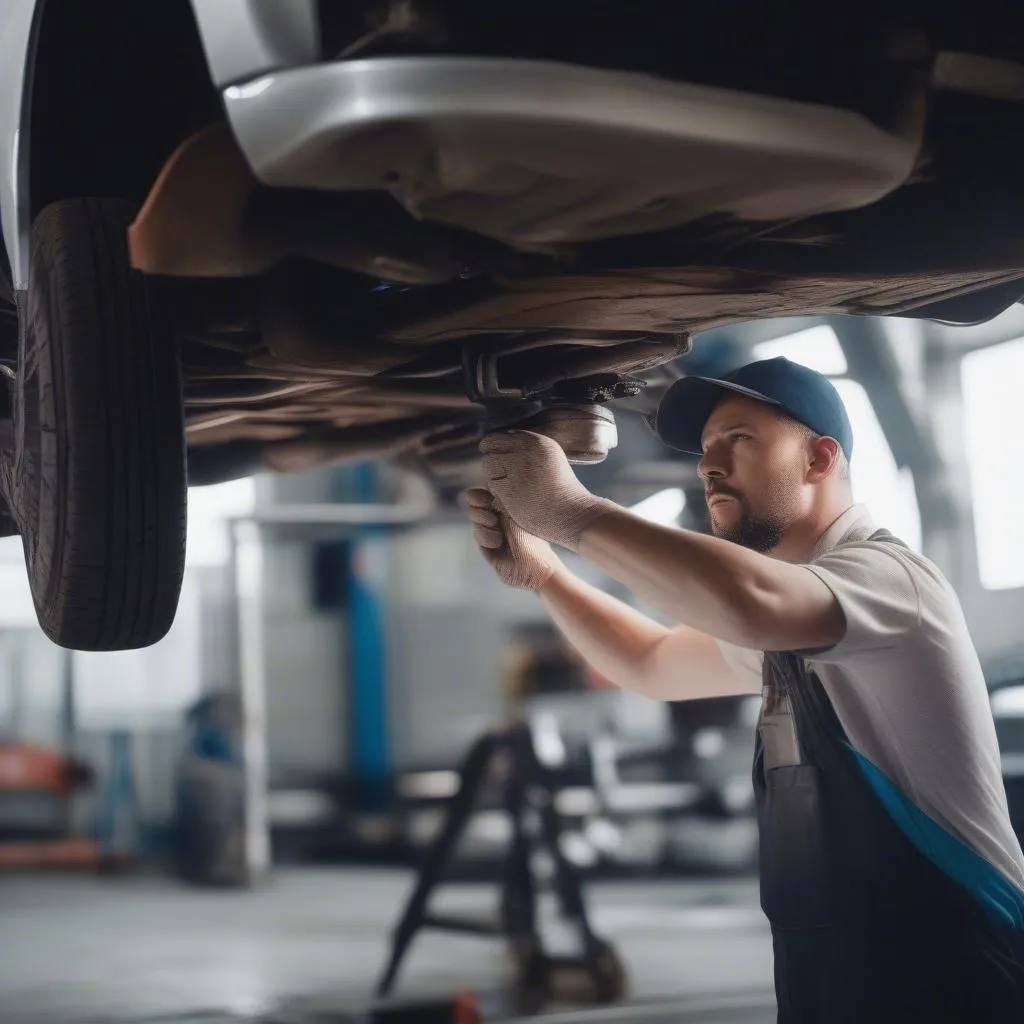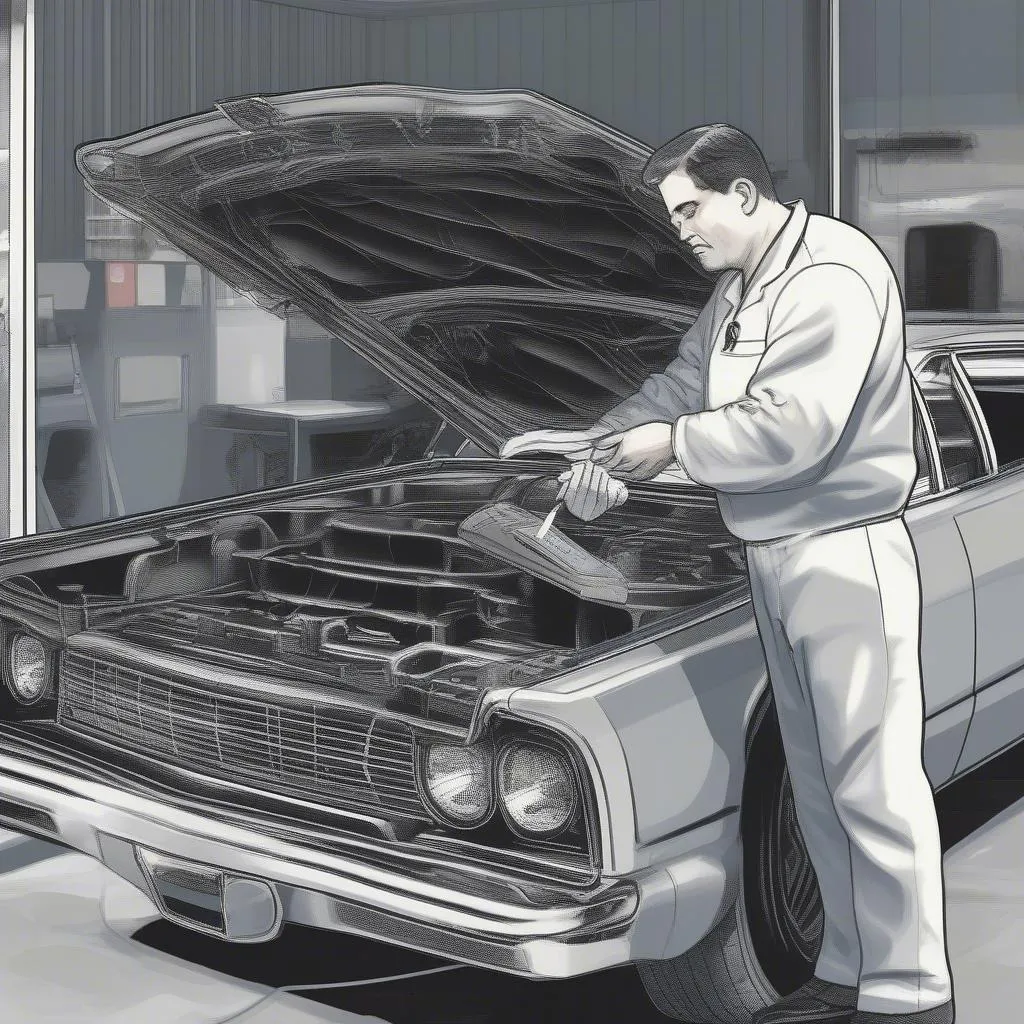Have you ever started your car and heard a loud “clunk” sound? It can be a scary experience, especially if you’re not sure what it means. This unsettling noise is a common problem that could indicate a range of issues, from a minor problem like a loose connection to a serious issue like a failing transmission.
Understanding the “Clunk”
Let’s dissect this mysterious “clunk” and understand what it might be telling us.
From a Mechanic’s Perspective
A “clunk” when starting a car is a signal that something is shifting or moving abruptly. It could be a mechanical component that’s worn out, a loose connection, or even a problem with the engine’s mounting system.
The Technical Angle
A “clunk” sound is often associated with the drivetrain of a car. This includes parts like the transmission, axles, and drive shafts. These components work together to transfer power from the engine to the wheels, and any issues in these parts can produce a noticeable “clunk”.
The Financial Factor
The cost of fixing a “clunk” can vary widely, depending on the cause. Minor issues might be resolved with a simple repair, while more serious problems could require expensive parts and labor.
What Causes a Clunk When Starting Your Car?
Now that we know what the “clunk” might mean, let’s dive into some of the most common culprits.
1. Loose or Worn Parts:
- Starter Motor: A loose or worn-out starter motor can create a “clunk” sound as it engages with the flywheel. This can often be accompanied by difficulty starting the car.
- Transmission Mount: A worn-out or loose transmission mount can cause the transmission to shift during startup, creating a “clunk” sound. This can be especially noticeable in older cars.
- Drive Shaft: A worn-out or loose drive shaft can also cause a “clunk”. This is particularly true when the drive shaft is engaged or disengaged.
2. Transmission Issues:
- Torque Converter: Problems with the torque converter, a hydraulic coupling that transfers power from the engine to the transmission, can lead to a “clunk” during startup.
- Shifting Problems: If your car has an automatic transmission, a “clunk” could indicate an issue with the transmission’s shifting mechanism.
3. Other Potential Causes:
- Engine Mounts: Worn-out engine mounts can allow the engine to move excessively during startup, leading to a “clunk” sound.
- Suspension Problems: In rare cases, worn-out suspension components can create a “clunk” sound that is mistaken for a drivetrain issue.
- Exhaust System: A loose or cracked exhaust system can also produce a “clunk” sound, especially when the engine is cold.
Diagnosis and Troubleshooting
Diagnosing a “clunk” sound requires a careful inspection of the car’s drivetrain and suspension system. It’s important to have a trusted mechanic perform a thorough check.
- Visual Inspection: A qualified mechanic will visually inspect components like the starter motor, transmission mounts, drive shafts, and suspension parts for signs of wear, damage, or looseness.
- Listening for Sounds: The mechanic will listen for additional sounds that could help pinpoint the source of the “clunk”.
- Test Drive: A test drive will allow the mechanic to assess the “clunk” under different driving conditions, such as acceleration, braking, and turning.
- Diagnostics Tool: A diagnostic tool, such as a Dealer Scanner, can be used to read any fault codes stored in the car’s computer. This information can be helpful in narrowing down the potential cause of the “clunk”.
Remember: Never attempt to diagnose or repair the “clunk” yourself unless you are a qualified mechanic. Attempting to fix the issue without proper knowledge and tools can potentially worsen the problem and lead to further damage.
Solutions and Recommendations
The solution for a “clunk” when starting a car will depend on the underlying cause. Here are some common solutions:
- Replacement of Worn or Loose Parts: Replacing worn or loose parts, such as the starter motor, transmission mount, drive shaft, or suspension components, can often resolve the “clunk” sound.
- Transmission Repair: If the “clunk” is related to the transmission, a transmission repair may be necessary. This could involve replacing a faulty torque converter, adjusting the shifting mechanism, or performing a transmission fluid flush.
- Exhaust System Repair: A loose or cracked exhaust system can be repaired by tightening or replacing the affected parts.
Frequently Asked Questions
Q: How do I know if the “clunk” is serious?
A: If the “clunk” is accompanied by other symptoms, such as difficulty starting the car, slipping transmission, or a loss of power, it could indicate a more serious issue.
Q: Can a “clunk” sound be caused by a worn-out battery?
A: A worn-out battery can affect the car’s starting process, but it’s unlikely to cause a “clunk” sound. If you’re concerned about your battery, have it tested by a mechanic.
Q: Is there a way to prevent a “clunk” sound?
A: Regular maintenance, including inspections of key components like the starter motor, transmission mounts, and drive shafts, can help to prevent the “clunk” sound.
Q: What happens if I ignore a “clunk” sound?
A: Ignoring a “clunk” sound can lead to further damage to your car’s drivetrain and suspension system.
Q: Should I consider a trade-in if the “clunk” is expensive to fix?
A: The decision to trade-in your car depends on the cost of the repair, the age and condition of your car, and your financial situation.
Further Resources
We hope this article has provided you with a comprehensive understanding of “clunk” sounds when starting your car. If you’re experiencing this issue, it’s important to consult a qualified mechanic to get a proper diagnosis and repair.
For expert advice on automotive diagnostics and repair, contact us at Whatsapp: +84767531508. Our team of certified technicians is available 24/7 to provide support and guidance.
 Car Clunk When Starting
Car Clunk When Starting
 Mechanic Inspecting Car
Mechanic Inspecting Car
 Dealer Scanner
Dealer Scanner
